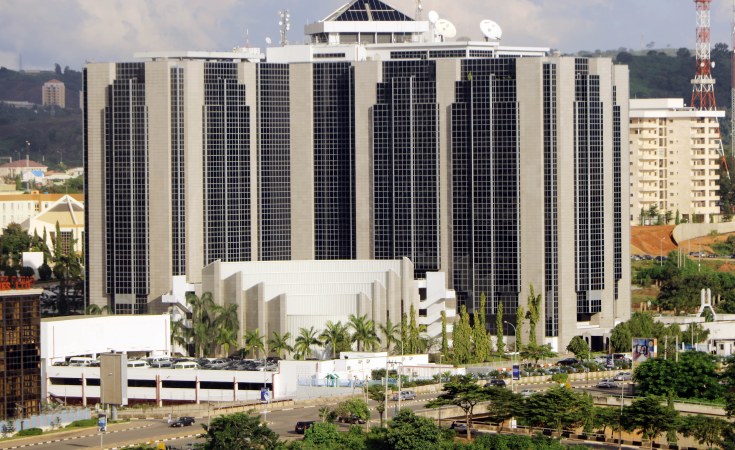As Nigerians welcome the arrest and detention of Central Bank governor, analysts tell DW how his controversial policies derailed the economy.
Nigeria's newly inaugurated President Bola Tinubu suspended Godwin Emefiele from his post as governor of Nigeria's Central Bank on Friday and the Department of State Services (DSS) detained him a day later. Emefiele had served as governor of the bank for nine years.
Tinubu's office said Emefiele had been suspended as part of an "ongoing investigation of his office and the planned reforms in the banking sector."
Prominent Nigerians and leading figures in the civil society had been calling for Emefiele's arrest and prosecution after he rolled out a "naira redesign policy" very close to the presidential election that led to massive cash shortages.
The Central Bank said the move was an attempt to crack down on corruption and cash ransom payments to kidnappers. But during the presidential campaign, Bola Tinubu said in Ogun state capital Abeokuta that the policies were deliberately designed to hinder his chances of winning the election.
According to Kano-based lecturer of politics, Kamilu Sani Sagge, many Nigerians also believed Emefiele's naira redesign policy was a political tool aimed at curtailing the financial power of some presidential candidates.
"Why would government take such (naira redesign policy) a decision on the eve of the election?" Sagge asked. "For me, whether it was targeted at anybody or not, it was a policy disaster."
Unpopular central bank policies
Many of Emefiele's policies allegedly drove the inflation rate to a 17-year high of 22.2% in April. Despite heavy criticism of the bank governor, then President Muhammadu Buhari still backed him, political analyst Tukur Abdelkadir tells DW.
"The collaboration between the Central Bank and the office of the former national security adviser... the way they were plundering the resources of the country... it was surprising, in an inexplicable fashion, that the former government of President Buhari reappointed him as the governor of the Central Bank," Abdelkadir says.
The naira redesign policy caused a massive cash shortage and huge queues at banks and ATMs. Experts say this disrupted economic activity. The monetary policy also severely restricted daily and weekly cash withdrawals.
The Central Bank also introduced a complicated system to limit access to foreign exchange. An exchange rate system with multiple rates and restrictions was introduced on imported products. The Central Bank also limited the amount of foreign exchange provided to commercial banks.
Moreover, Emefiele reportedly blocked the Central Bank from supplying foreign currency to exchange vendors.
Local media reported that the Central Bank yielded to government pressure to finance expensive government programs that cost the economy billions of naira.
APC party politics
Emefiele was a powerful figure in Nigeria, according to analyst Abdelkadir. Local media reported Emefiele challenged Tinubu in party primaries to be the All Progressives Congress (APC) candidate for the office of the presidency. The governor denied his involvement in partisan politics.
"He [Emefiele] violated some provisions of the electoral laws," Abdelkadir told DW. "As a serving public officer, his so-called allies purchased a nomination form for him at 100 million naira. In addition to that, they were campaigning for him, there were posters everywhere. He refused to resign and surprisingly the former president spared him."
Tinubu's rocky start
President Tinubu's tenure, meanwhile, got off to a rocky start when he immediately slashed long-established fuel subsidies on the day he was inaugurated. Fuel prices rose sharply on the news and reports of panic-buying followed.
He also took over a series of serious economic challenges including record debt, shortages of foreign exchange currencies, a weak naira, high inflation and patchy electricity supply.


